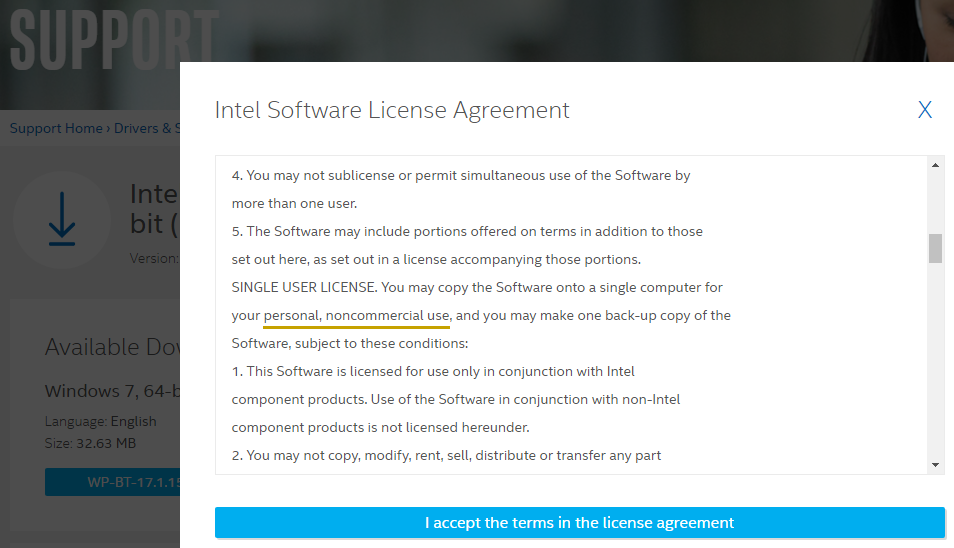I have an Intel wireless adapter in my laptop and I went to their website to download an updated driver. In order to begin the download, I was required to agree to the Intel Software License Agreement, a section of which contains the following statement:
What does this mean when applied to software necessary to make a piece of hardware function correctly? If I conduct business over the Internet (using the wireless adapter) am I violating the license?
